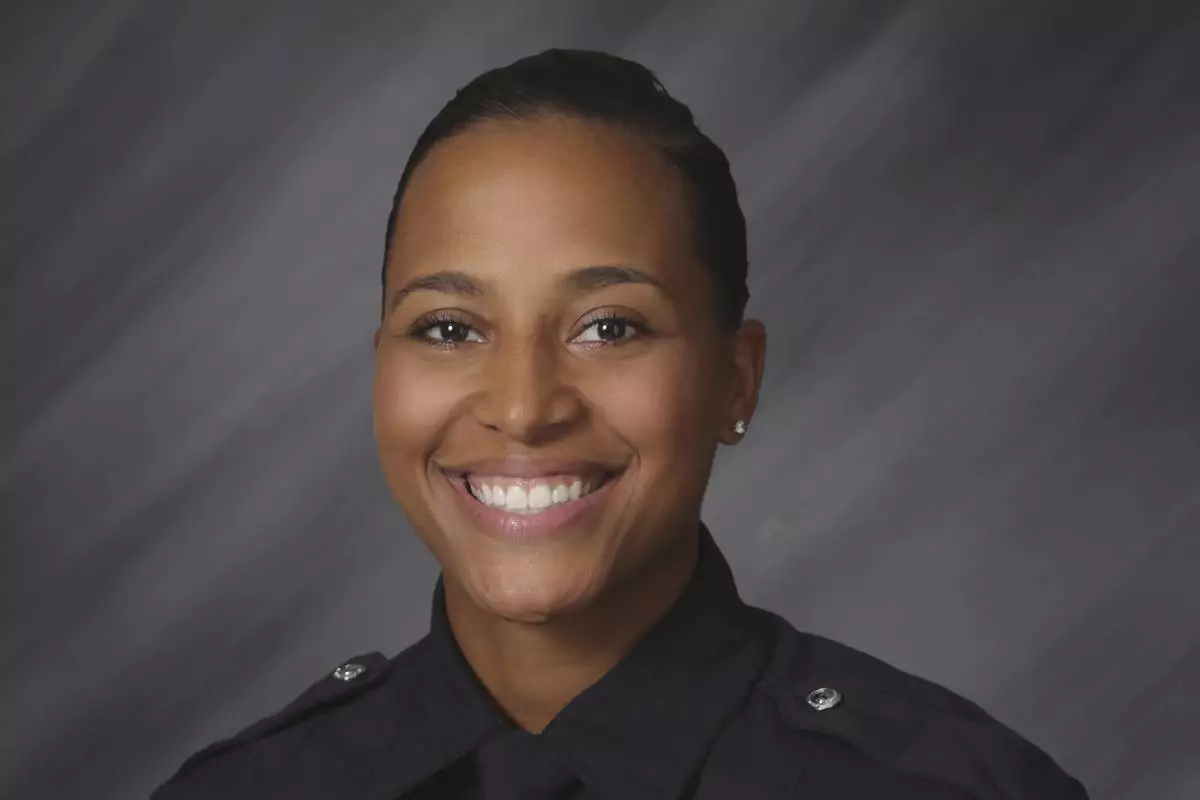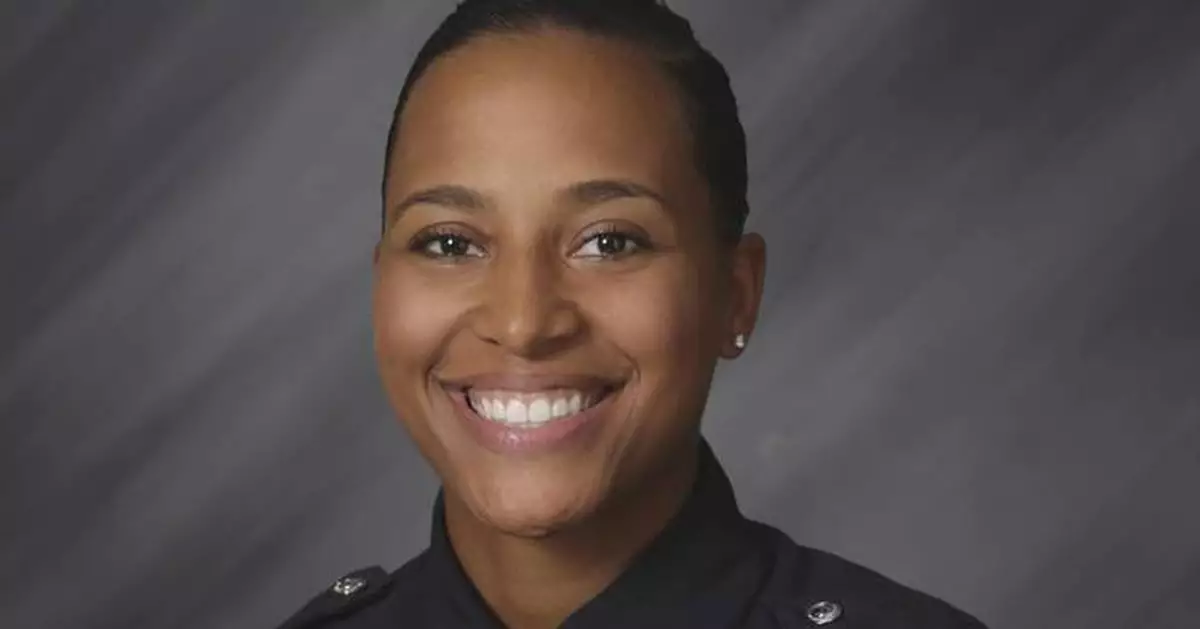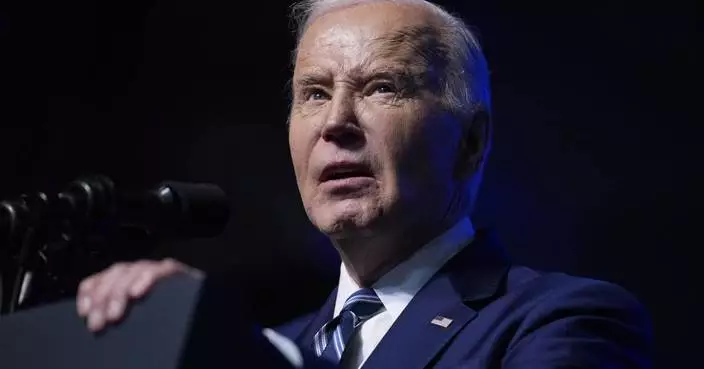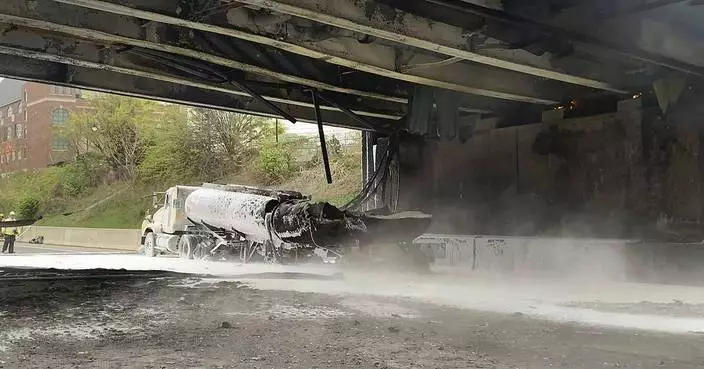INDIANAPOLIS (AP) — A man found guilty but mentally ill in the killing of an Indianapolis police officer has been sentenced to 25 years in prison for shooting his then-girlfriend but to time served for killing the officer.
Elliahs Dorsey, 31, of Indianapolis, was found guilty but mentally ill of reckless homicide in February of killing Indianapolis Metropolitan Police Department Officer Breann Leath in 2020 as she responded to a domestic violence call.
A jury also found him guilty but mentally ill of criminal recklessness regarding the three other officers who responded to that call, and guilty but mentally ill in the attempted murder and confinement of his then-girlfriend, Aisha Brown.
A Marion County judge sentenced Dorsey on Thursday to just over five years for killing Leath but gave him credit for good behavior and counted the years already spent in jail since his arrest as time served, The Indianapolis Star reported.
The judge sentenced Dorsey to 40 years, with 15 years suspended, for shooting Brown as she ran from an apartment on the city's east side. He will serve 25 years in the state Department of Correction and be required to spend 15 years on probation with specific mental health treatment requirements following his release.
In January, the judge granted the state’s motio n to dismiss death penalty charges after doctors found Dorsey to be mentally ill.
Chief Chris Bailey of the IMPD said in a statement he is “deeply disappointed” by Dorsey's sentencing, saying it “fails to deliver the justice that Officer Leath, her son, and her family deserve.” He added that Dorsey also tried to kill other officers and Brown.
Mayor Joe Hogsett said that as a former federal prosecutor he respects the justice system.
“However, as the Mayor of the City of Indianapolis, as the chief elected official to whom IMPD directly reports, as a father, and as a member of this community, I am shocked and terribly disappointed in the decision of the court today," he said in a statement.
Leath, 24, and three other officers were responding to a domestic violence call in April 2020 involving Dorsey when Leath was shot twice in the head through the door of an Indianapolis apartment, police said.

FILE - This June 14, 2018, photo provided by the Indianapolis Police Department shows Indianapolis Police Officer Breann Leath. A man found guilty but mentally ill in the killing Leath has been sentenced to 25 years in prison Thursday, April 4, 2024, for shooting his then-girlfriend but to time served for killing the officer, a sentence the city's police chief calls “deeply” disappointing. (Indianapolis Police Department via AP, File)
BRENTWOOD, N.H. (AP) — Jurors heard closing arguments Thursday in a landmark case seeking to hold the state of New Hampshire accountable for abuse at its youth detention center.
The plaintiff, David Meehan, went to police in 2017 and sued the state three years later alleging he was brutally beaten, raped and held in solitary confinement at the Youth Development Center in the 1990s. Since then, 11 former state workers have been arrested and more than 1,100 other former residents have filed lawsuits alleging physical, sexual and emotional abuse spanning six decades.
Meehan’s lawyer David Vicinanzo told jurors that an award upwards of $200 million would be reasonable — $1 million for each alleged sexual assault. He argued that the state’s clear negligence encouraged a culture of abuse marked by pervasive brutality, corruption and a code of silence.
“They still don’t get it,” Vicinanzo said. “They don’t understand the power they had, they don’t understand how they abused their power and they don’t care.
But the state’s lawyer said Meehan’s case relied on “conjecture and speculation with a lot of inuendo mixed in” and that zero liability should be assigned to the state.
“There was no widespread culture of abuse,” attorney Martha Gaythwaite said. “This was not the den of iniquity that has been portrayed.”
Gaythwaite said there was no evidence that the facility’s superintendent or anyone in higher-level state positions knew anything about the alleged abuse.
“Conspiracy theories are not a substitute for actual evidence,” she said.
Meehan, whose lawsuit was the first to be filed and first to go to trial, spent three days on the witness stand describing his three years at the Manchester facility and its aftermath. He told jurors that his first sexual experience was being violently raped by a staffer at age 15 and that another staffer he initially viewed as a caring father-figure became a daily tormenter who once held a gun to his head during a sexual assault.
“I’m forced to try to hold myself together somehow and show as a man everything these people did to this little boy,” he said. “I’m constantly paying for what they did.”
Meehan’s attorneys called more than a dozen witnesses, including former staffers who said they faced resistance and even threats when they raised or investigated concerns, a former resident who described being gang-raped in a stairwell, and a teacher who said she spotted suspicious bruises on Meehan and half a dozen other boys.
“The rot started at the top," Vicinanzo said Thursday. “The fish rots from the head. The tone starts there.”
The state called five witnesses, including Meehan’s father, who answered “yes” when asked whether his son had “a reputation for untruthfulness." Among the other witnesses was a longtime youth center principal who saw no signs of abuse over four decades, and a psychiatrist who diagnosed Meehan with bipolar disorder, not the post-traumatic stress disorder his side claims.
In cross-examining Meehan, the state’s attorneys portrayed him as a violent child who continued causing trouble at the youth center and a delusional adult who is exaggerating or lying to get money. In her closing statement, Gaythwaite apologized if she suggested Meehan deserved to be abused.
“If I said or did anything to make that impression or to suggest I do not feel sorry for Mr. Meehan, I regret that,” she said. “It was my job to ask difficult questions about hard topics so you have a full picture of all of the evidence.”
Her approach, however, highlighted an unusual dynamic in which the attorney general’s office is both defending the state against the civil lawsuits and prosecuting suspected perpetrators in the criminal cases. Though the state will be relying on Meehan's testimony in the criminal cases, it has tried to undermine his credibility in the current case.
Continuing in that vein Thursday, Gaythwaite reminded jurors that log books and other records indicate Meehan sustained a groin injury in playing football in 1998 and not from a rape in which he said he was knocked unconscious and left on an athletic field. It wouldn’t make sense for multiple staffers to coordinate their reports, she said.
“Even if all those folks were motivated to help someone cover up a crime, are you really supposed to believe they could pull it off?” she said.
“Do you know any governmental agency anywhere that could be that efficient and that organized?” she said. “We couldn’t even get our witnesses here on time to court.”
But Vicianzo pointed out that the staffer who initially documented the injury had been promoted despite an ombudsman's recommendation that he be fired for hitting a teen.
"The denial, the entitlement of our state government, our state bureaucrats, is unbelievable,” he told jurors. “It’s hard to accept. You don’t have to accept it, and I’m confident you won't.”
The jury will begin deliberations Friday after hearing further instructions from the judge.

FILE - The Sununu Youth Services Center in Manchester, N.H., stands among trees, Jan. 28, 2020. Jurors on Wednesday, May 1, 2024, heard the final witness in a landmark trial seeking to hold the state accountable for alleged abuse at the facility. (AP Photo/Charles Krupa, File)











